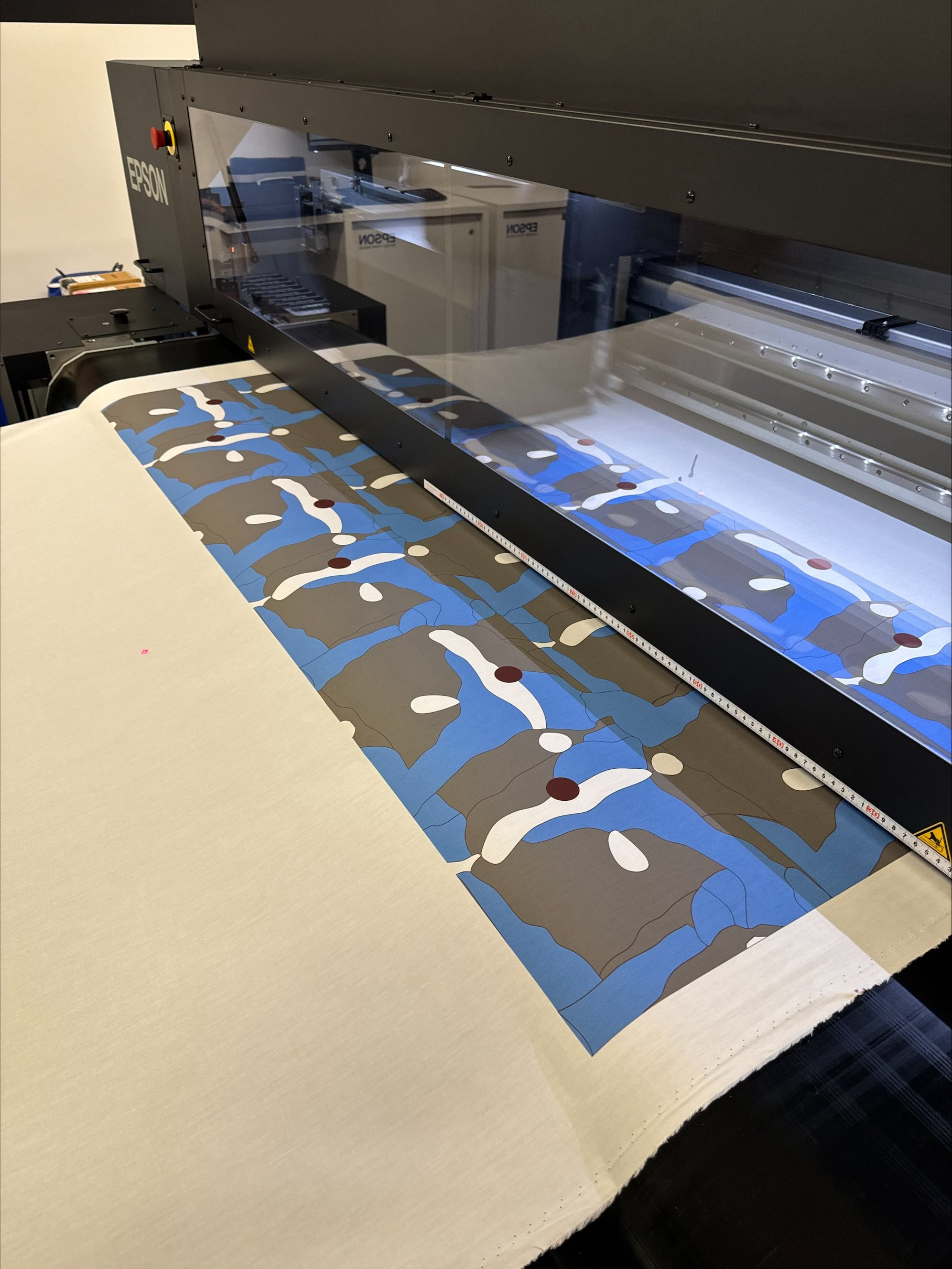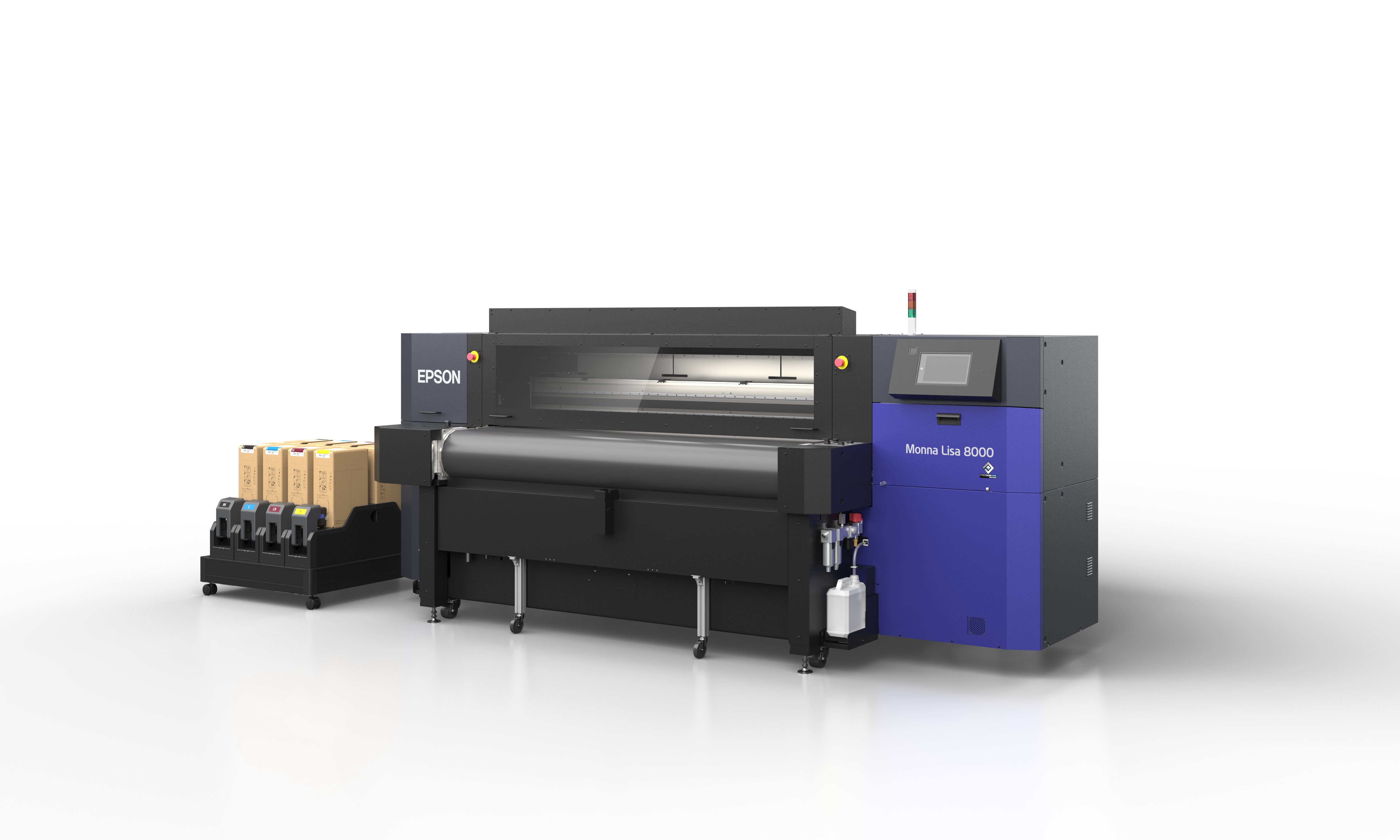- Home ›
- News & Events›
- Press Releases
News & Events
Press Releases
Victorian fashion manufacturing at a $1 billion crossroads
September 2024
Victorian fashion manufacturing at a $1 billion crossroads
MELBOURNE, 3 SEPTEMBER 2024 – Victoria’s fashion manufacturing industry has reached a critical point in its evolution, new research commissioned by the Australian Fashion Council and Epson Australia has revealed.

Designs by Ngali Owner and Designer, Denni Francisco being printed out on an Epson Monna Lisa digital direct-to-fabric printer
Compiled by RMIT University, the report - titled ‘Victorian TCF (Textile, Clothing, Footwear) Manufacturing: Future Jobs, Technology and Economic Growth’ - details, for the first time, the current and potential value of the almost $1 billion industry.
Although Victorian TCF manufacturing has shed 18% of its value in the past five years, key policy interventions, industry and government can together inject an additional $225m into the Victorian economy and create a further 1,500 jobs. This would be particularly beneficial for women in the sector with a survey showing over half of businesses have more than a 60% female workforce (compared to 28% in Australian manufacturing, generally).
In contrast, without preferencing and investing in the sector, on its current trajectory $98 million of value will be lost by 2030, along with 700 jobs. In addition, the State will see a loss in technical skills, an increased reliance on overseas supply chains and miss the opportunity to enhance Victoria's reputation as a source of high-quality, innovative and sustainable products.
This research strongly demonstrates the sector can be transformed into a female-led manufacturing powerhouse, with Victoria at the forefront and identifies five key areas to drive productivity, innovation and higher wage growth. Recommendations include:
- Adding TCF manufacturing as a priority within the Made in Victoria statement;
- Strengthening government procurement policies to increase local content in uniforms, workwear and personal protective equipment (PPE) contracts;
- Developing a revitalised TCF skills and training program to full workforce skill gaps;
- Co-investment in advanced technology and jobs of the future for a sustainable, circular clothing economy; and
- Developing a national TCF manufacturing strategy, with Victoria at the forefront.
“It’s imperative to the future of Victoria’s, and more-broadly Australia’s, textiles, clothing and footwear manufacturing industry that we collectively invest in and preference local. This sector is ours to lose. By implementing these very practical and achievable recommendations we can revive the industry, retain sovereign capability in Australia in TCF manufacturing and empower Australian brands to start, remain or even return onshore,” Australian Fashion Council CEO, Jaana Quaintance-James said.
“What has also been made clear is how important swift action is for the many women employed in fashion manufacturing, and how crucial the role of a female-powered workforce will be in turning its decline around.”

Australian Fashion Council CEO, Jaana Quaintance-James
The report also highlights cost efficiencies and reduced waste that can be achieved should a smart-factory model be rolled out. Smart-factories utilise advanced technologies including digital sampling, digital printing and laser cutting to reduce waste and production lead times.
“With the help of new sustainable technology such as the Epson Monna Lisa direct-to-fabric printer, manufacturing locally can be made far more cost effective for brands, enabling made-to-order production, reducing waste to landfill and ensuring cost efficiencies,” Epson Managing Director, Craig Heckenberg said.

Epson Managing Director, Craig Heckenberg
“The smart-factory concept and technology to support it, can allow Australian brands tonproduce high quality, sustainable Australian-made clothing, for Australian consumers and abroad,” Heckenberg continued.

Epson Monna Lisa ML-8000 digital direct-to-fabric printer
Through adhering to the recommendations in the report, more Australian-owned labels will be able to operate entirely onshore and have the capacity and capability to continue long term.
“If the industry was adequately supported to enable brands like mine to be able to produce onshore, it would significantly help to streamline our business and take advantage of just-in-time manufacturing so critical to address sustainable activity. I’m sure many labels would feel the same. We all want to support our highly skilled talent at home, and continue to grow the Australian textiles trade, its job market and ultimately the wider economy,” said Ngali Owner and Designer, Denni Francisco.
The report is available now at www.ausfashioncouncil.com
Picture credit
Designs by Ngali Owner and Designer, Denni Francisco being printed out on an Epson Monna Lisa digital direct-to-fabric printer.
Epson Monna Lisa ML-8000 digital direct-to-fabric printer.
AFC CEO, Jaana Quaintance-James.
Epson Managing Director, Craig Heckenberg.
Follow Epson on social media:
LinkedIn: @Epson-Australia
Facebook: @EpsonAustralia
Twitter: @EpsonAust
YouTube: @EpsonAustralia
Instagram: @EpsonAust
International Press Releases
Read them at: http://www.epson.co.jp/e/newsroom/newsroom_index.htm
- Home ›
- News & Events›
- Press Releases



